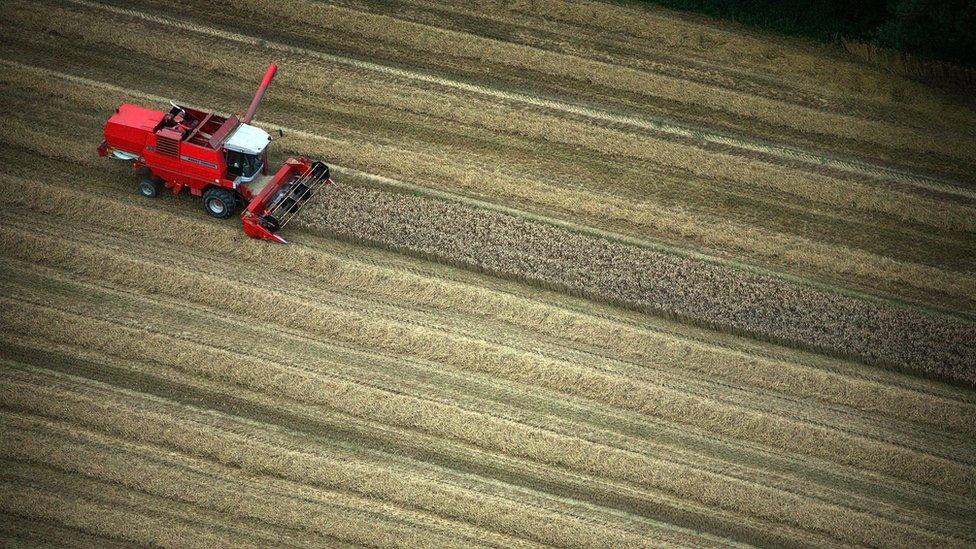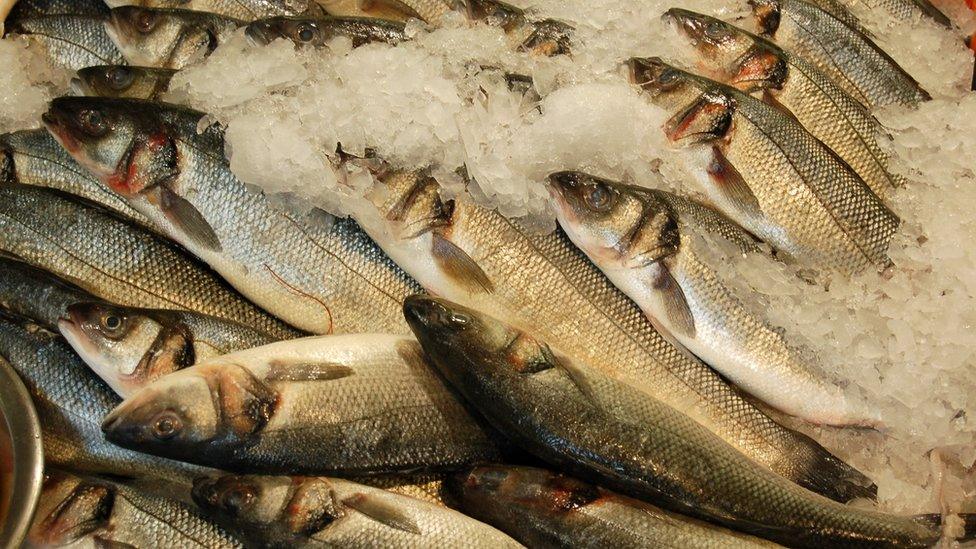UK and the EU: Farming and fishing
- Published

Stats and facts
The land, seas and wildlife of the UK are massively influenced by the EU.
One of the biggest factors is the Common Agricultural Policy (CAP), which swallows 40% of the EU budget. CAP grants originally encouraged food output, but this produced "butter mountains" and "wine lakes".
Farmers argued that if the subsidies were withdrawn, many of them would go bankrupt. They say welfare and environmental standards are typically higher in the EU than elsewhere, so costs are higher. That means the subsidies continue, although they are now based on the size of the farm rather than the output.
Most farms are small but some wealthy landowners get more than £1m in subsidy from the EU.
Intensification of farming - encouraged by the CAP - devastated wildlife, with many populations of farmland birds more than halved since the 1980s.
The UK and others have pushed for farmers to be rewarded more for looking after wildlife, and the downward trend has slowed.
But the EU farm lobby is hugely influential, and in 2013 it managed to water down plans from the European Commission to oblige farmers to earn their subsidies by doing much more to protect wildlife.
Now more 30% of grants theoretically protect the environment, although green groups say most of the measures are ineffective.
The Common Fisheries Policy is controversial too. Fish stocks - along with jobs in the industry - plummeted as the EU gave grants for new technology on boats . Recent moves, including a ban on fish discards, attempt to reverse the decline in fish numbers.
Other EU laws on wildlife attempt to counterbalance the negative impact of policies on farming and fishing.
What does the EU do?
The EU creates a common market for Europe's farm produce. It lays down a web of rules governing farmers.
Through negotiation between member states, it allocates ceilings on total catches of many fish. Co-operation is needed because many fish migrate across national borders.

The EU governs wildlife protection through the habitats directive, which covers the largest network of protected areas in the world.
It's designed to meet Europe's commitment to halting the steady loss of wildlife. But this has been only partly successful as conservation efforts by states have been patchy. Birds get their own directive because, like fish, migrating birds don't need passports.
…and what doesn't it do?
Member states - including the UK's nations - control about 25% of grants to promote rural development and reward farmers for protecting the environment. Governments also allocate allowances for fish catches, designate national parks and plan land use.
UK opt-outs?
None
The argument for leaving the EU
Farmers would face less bureaucracy. The UK could trim farm subsidies, which would reduce the tax burden. The UK could allow GM crops, and encourage trees to take over the uplands.
The argument for staying in the EU
Many farmers support the EU because it is likely to remain more generous to farms than the UK. If the UK leaves the EU, farmers may still have to obey Brussels laws to export to Europe anyway. Action to protect wildlife is easier with international co-operation.